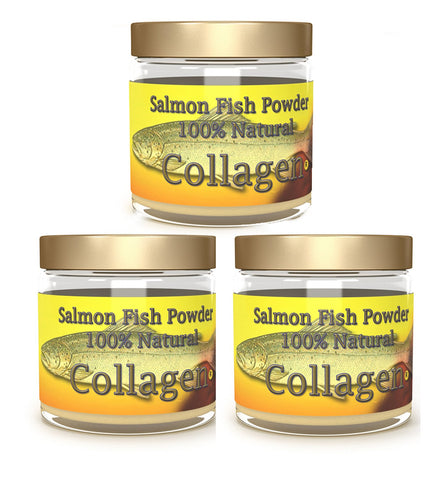Salmon Collagen | Rheumatoid Arthritis and Its Causes
Posted by AMIT SUTHAR


Rheumatoid arthritis is a chronic and progressive autoimmune inflammatory disease that causes pain, swelling and stiffness of the joints and tissues ( around the joints).
The inflammation begins in the synovial membrane. The synovial membrane protects the wrists, provides nutrition to the cartilage and it produces the synovial fluid. Worldwide, 1% of the population suffers from arthritis in a ratio 1:3 among men and women.There are two stages of this arthritis: early one, where the symptoms last up to three months, and a diagnosed rheumatoid arthritis with symptoms of inflammation and swelling of the joints.
The most common main symptoms are pain and stiffness of the affected joints. The stiffness typically worsens in the morning, but it can also occur at any time during the day and it can last up to two hours or in some cases -all day.
Other Symptoms:
- loss of energy;
- slightly increased temperature;
- loss of appetite;
- anemia, and fatigue;
- often sweating;
- loss of body weight;
- sleep disturbances;
Causes
The immune system creates antibodies that are used for creating a defense against bacteria, viruses and other microorganisms. Among the people with rheumatoid arthritis,is common that the established antibodies are attacking synovium (tissue that surrounds each joint) where an inflammation occurs. Smoking cigarettes and drinking more than three coffees per day also increases the risk of arthritis. Researchers still have not found clear data indicating that the existence of hereditary genes may be the causeof arthritis, but it is believed that genetic factors play a major role here although, that does not mean that the arthritis is hereditary. Many factors can be the reason for reducing and preventing the expansion of this disease, one of them is sufficient amount of collagen inside the body. Given that the collagen acts as a lubricant for the skeleton, not only that he protects the organism from various forms of arthritis but it also helps the development of bones, joints, and muscles. Over the years the levelof collagendeclines and it should be replaced by supplements (Salmon Collagen).
Affected Joints
Most commonly, arthritis affects the joints of the fingers, thumbs, wrists, feet,and ankles. However,arthritis can also affect any other joints in the body. For some people, rheumatoid arthritis affects only a small number of joints, and for others, the inflammation can affect a dozen of joints. The arthritis is usually symmetrical, meaning: if a joint on the left hand suffers from arthritis, probably the same thing will happen to the joint on the other hand. The joints act as absorbers and they cannot function properly if the cartilageis constantly creating a friction. This leads to a grinding that causes pain when it reaches a certain level of friction. Collagen helps to reduce the friction and also, stimulates the thickening of cartilage, which leads to less joint pain for the majority of patients, according to numerous studies and researches.
Development and progress
In most cases, the symptoms develop gradually over several weeks. It may happen an appearance of numbness in the hands, fingers, and soles. After a while, in some severe cases, it can be noticed pain and swelling in those joints. However, it must be mentioned that the collagen is the only active substance that stimulates the metabolism of the cartilage and improves the cell synthesis of it.The patient should continuously use Salmon collagen even if the pain is gone because the symptoms and pain would probably return sooner or later if the person stops using it.
Diagnosing the Disease
There is no single test that can clearly diagnose any type of arthritis. When will initially develop joint pain, it is difficult to say for certain that it is rheumatoid arthritis because there are so many causes for joint pain. Blood tests can identify inflammation, specific antibodies and anemia but, It is more than necessary to consult yourself with a physician rheumatologists who can compose the final diagnose.

